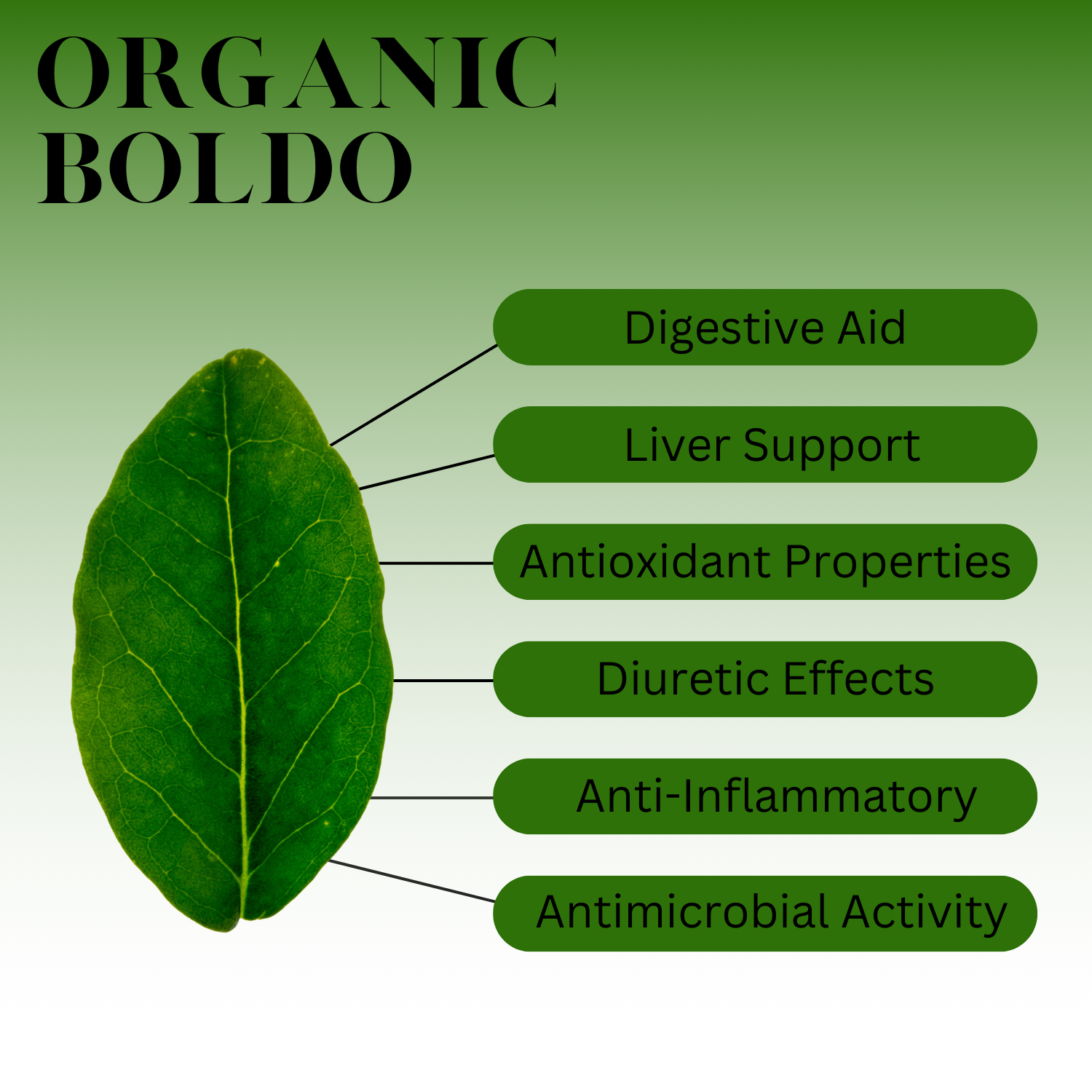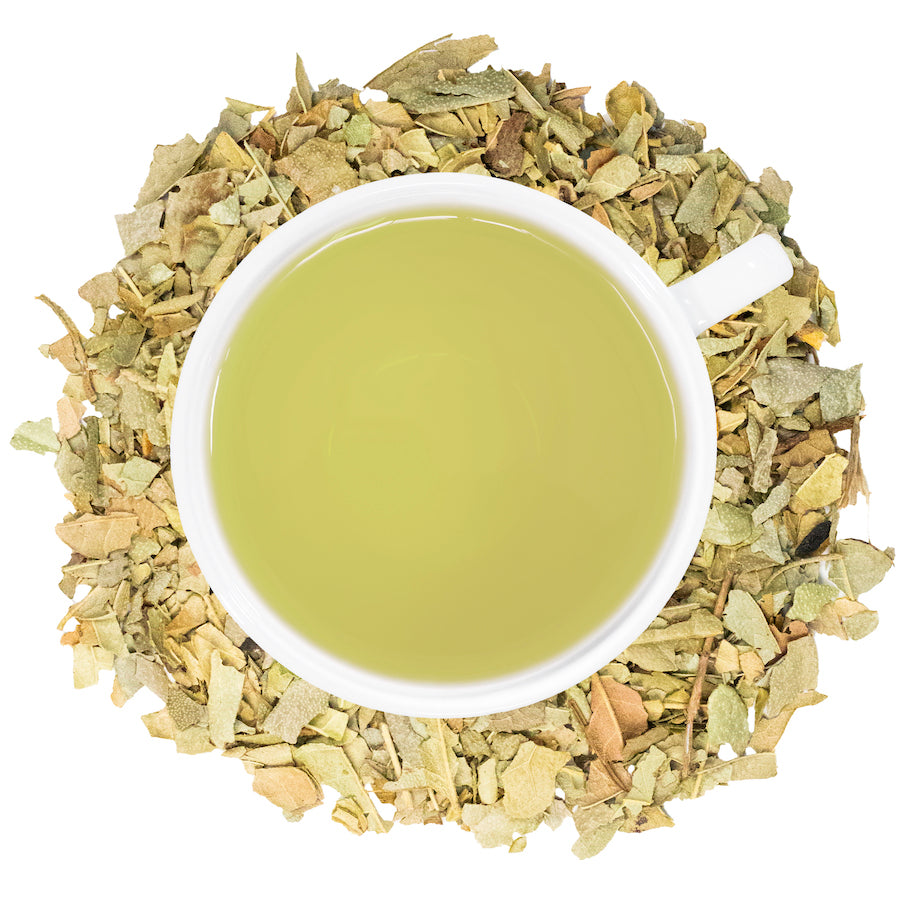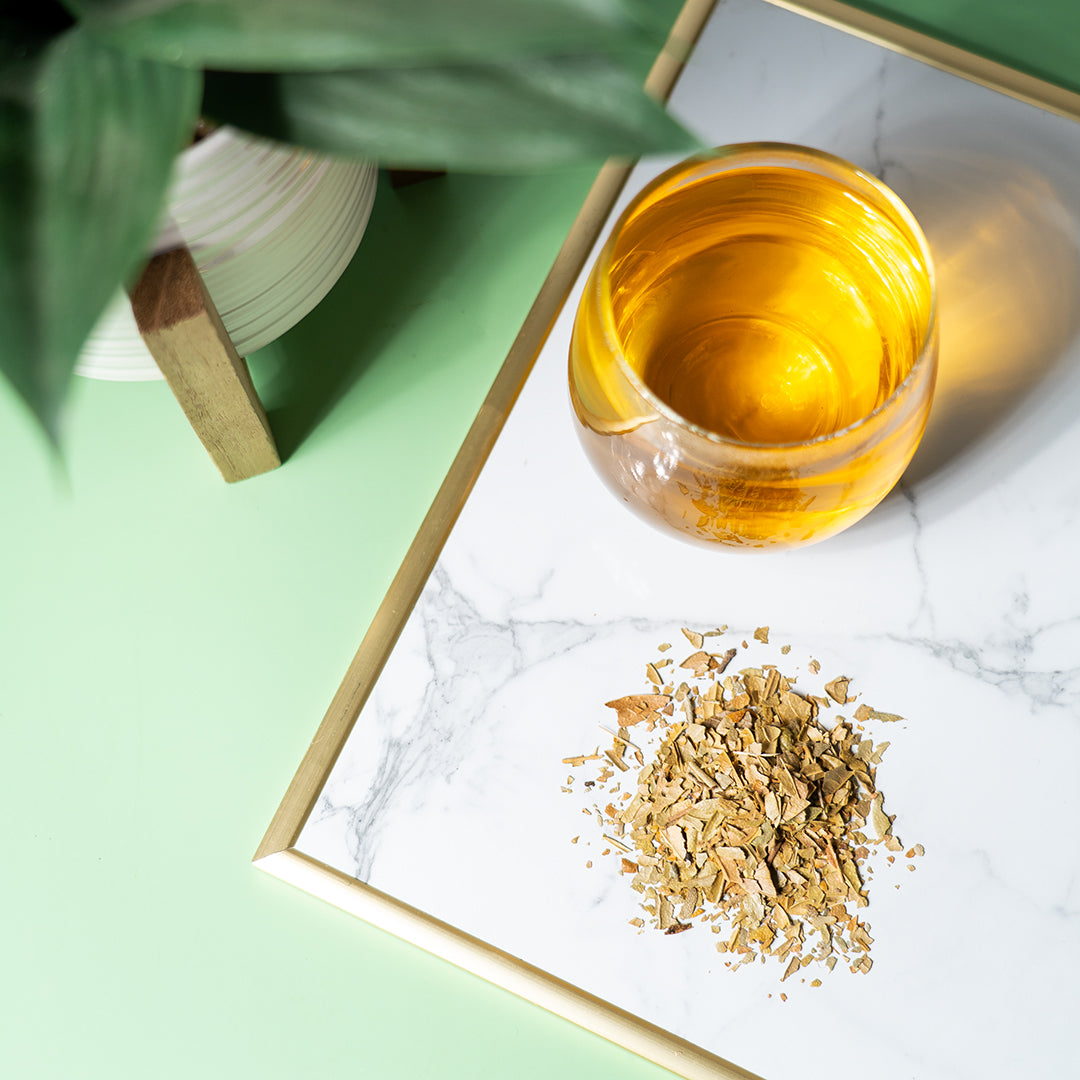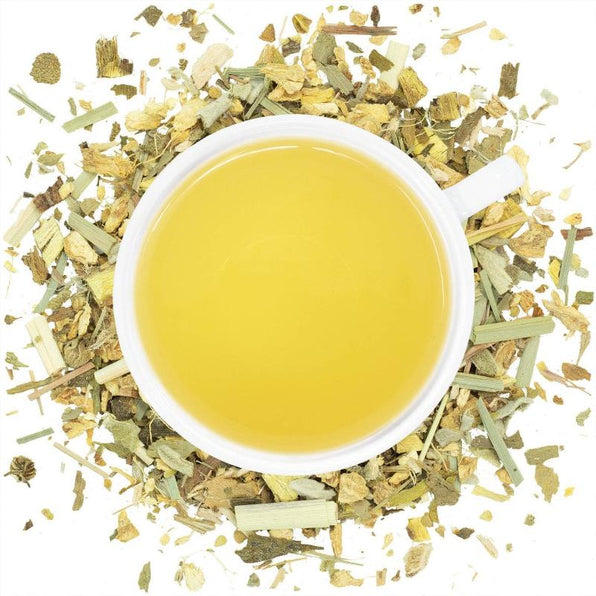What is Boldo?
Boldo, or Peumus boldus, stands as a fascinating evergreen shrub indigenous to South America, with its roots deeply embedded in Chilean traditions. The plant's aromatic leaves are a testament to its rich herbal heritage, having played a significant role in traditional herbal medicine and as a flavorful herbal tea for countless generations. Boldo tea, derived from these leaves, has earned a reputation for its potential to aid in digestion. It has been a go-to remedy for individuals experiencing common discomforts like indigestion and bloating. Beyond its functional attributes, the tea offers an intriguing sensorial experience, characterized by an earthy base complemented by subtle minty notes, making it a distinctive and soothing choice for those who value both natural remedies and sensory pleasures in their pursuit of digestive well-being.















